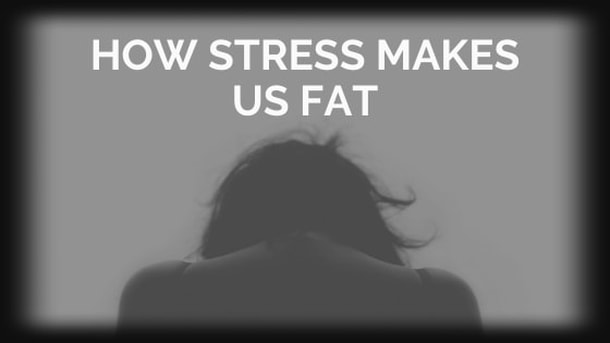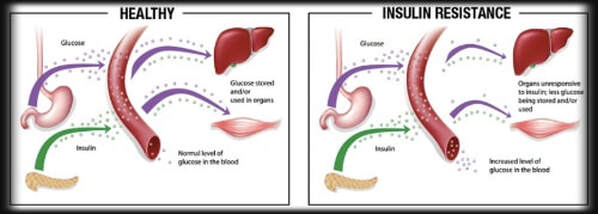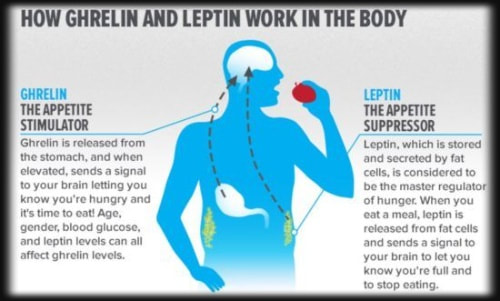|
If you read my previous article "How Stress is Ruining Your Health", then you’re probably relatively aware of the important role that stress plays in our well-being. For those of you who didn’t - go check it out, it’s a nice little prelude to this article. Regardless, let me quickly outline some fundamentals. We all experience varying degrees of stress throughout our lives – it’s a necessary and non-negotiable part of human existence. The issue we see in our modern day lives however, is that we're aggressively bombarded with stress-evoking stimuli; incessantly checking our phone, arguments with a partner, being stuck in traffic on the way to work. Stress never really leaves us - it’s chronic. It’s widely accepted that when we live in states of chronic stress, our health takes a hit in several different ways. However, I figured it would be of particular use for me to take a deeper dive into how stress can lead to fat gain - both directly & indirectly. CortisolFirst, we have to talk about the actions of cortisol - the stress hormone. Cortisol plays a central role in our survival & well-being. Whenever we experience a stressful stimuli, the body quickly responds by going into ‘fight-or-flight mode’. Adrenaline is released, increasing our heart rate, breathing rate. We’re primed for action. Part of the fight or flight process is the production of Cortisol. It works to suppress all functions that aren’t essential in that moment, digestion for instance, thus allowing your body to fully focus on the threat at hand. It also triggers your liver to begin producing & pushing out glucose into the bloodstream. Glucose can be used as energy, so this is essentially allowing you to have the energy to react. This fight-or-flight response is great for dealing with short-term threats; when our ancestors were faced with a predator in the wild for example. The idea is that the response takes place, we exert the energy (we fight or we run away), and then things return to normal (or more tragically, we don’t survive the threat). However, this is a little different to the stressful stimuli we experience nowadays. Our stressors tend to be a little less life-or-death, but a lot more consistent. This persistent stress response can do us real damage. Cortisol is being produced in excessive amounts, affecting both other hormones & normal physiological functioning. When this happens over a long period of time, our physiology starts to become affected. So, how exactly? First up, insulin. Insulin ResistanceIn healthy individuals, insulin acts as an efficient mechanistic hormone maintaining blood sugar at a healthy level. It does this by allowing glucose to enter muscle, liver & fat cells to be stored as a form energy. However, the presence of cortisol inhibits the action of insulin. (p.s. If you want to learn more about the role of insulin, check out this article). When this doesn’t happen, blood glucose (sugar) levels begin to spike. If cortisol levels aren’t reduced, the levels can continue to rise & remain elevated, leading to pre-diabetic conditions. Over time, if unaddressed, this can lead to the development of type 2 diabetes - I shouldn’t have to tell you that this isn’t good news. A key contributing factor is that the inhibition of insulin results in the inability of our cells to receive the energy they want & need. Resultantly, they signal to the brain - “we need more energy!”. Subsequently, you eat more. This of course further elevates blood glucose levels & causes you to put on weight. Now although cortisol suppresses the action of insulin, the elevated blood glucose levels actually cause insulin production to spike. You might think this is good news. Not quite. As blood glucose levels continue to rise, more and more insulin is required to store the glucose. This leads to your cells become increasingly ‘insulin resistant’. Now, when insulin resistance develops, that’s when shit really starts to hit the fan. Essentially, your cells are less willing to uptake glucose from the bloodstream via insulin. Your muscle & liver cells develop resistance first, leaving just one place for the glucose to be stored - the fat cells. Over time, if unchecked, even the fat cells become resistant, meaning you now have glucose in the blood with nowhere to go. Finally, there have been a few studies suggesting that elevated cortisol levels actually lead to increased cravings for often unhealthy, calorie-dense food choices. That was a lot, I know. Essentially, elevated cortisol levels lead to insulin resistance, potential development of type 2 diabetes & fat gain through elevated hunger levels/cravings and increased fat deposition. Stress Affects Our SleepThe second key way in which stress can lead to weight gain is a little less direct. If you read my recent article on the role of sleep in weight-loss, then you’ll likely know where I’m headed with this. When the stress response is activated we can experience shortened sleep time, fragmented sleep & decreased slow wave sleep. To make matters worse, when our sleep quantity and/or quality is reduced, our stress/cortisol levels actually rise. It’s a self-perpetuating cycle. So sleep is worsened, but how does this relate to weight gain? Well, two key hormones involved in hunger & satiety, ghrelin and leptin, are directly affected by our sleep. Ghrelin is responsible for signaling of feelings of hunger & leads to storage of calories by the body. Meanwhile, leptin does the opposite - it signals satiety, telling our body we are satisfied and there’s no need to store calories. Under normal conditions these hormones operate effectively - we feel hungry when we genuinely need food and feel full post-eating. However, when sleep deprived these hormones can get severely out of line. Ghrelin levels spike, whilst leptin levels drop. With these hormonal imbalances, we experience elevated feelings hunger, leading to an increased propensity to eat - even when the body doesn’t actually require the energy/food. The more calories we consume, the more body weight and fat increases. This is the primary means by which sleep affects our weight - but, it’s not the only way. We’re all aware of how we feel following a full night of refreshing sleep compared to a meagre few hours of disrupted sleep. When our sleep is disrupted, our mood and energy is always likely to suffer. When low on energy & in a poor mood we’re much more inclined to make lifestyle choices that are causative to weight gain. We eat foods we know are bad for us & in increased quantities. We have less energy & feel less inclined to be physically active. So we become increasingly sedentary, engage in more stress-evoking behaviours, and consequently continue to experience poor sleep. A depressing cycle. What Can I Do?If you managed to keep up until this point, good job. Hopefully I’ve been able to make it quite clear how our stress levels have direct & substantial effects on our body weight & overall health.
You’re probably wondering what you can actually do to reduce your stress. Well, a good starting point is addressing the factors I discussed in this article: nutrition, sleep, physical activity. Eat whole foods & limit your consumption of refined carbohydrates. Get sufficient & good quality sleep. Be consistently physically active. To learn more about how to do each of these, I highly recommend you access my free e-book. It provides practical solutions & tips to each of the aforementioned aspects, allowing you to make straightforward lifestyle changes to improve your health & well-being. |
Author
Christian Lawal Personal Training.
Personal training in Tunbridge Wells, Tonbridge & Sevenoaks. Archives
January 2024
|




